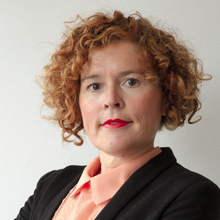Productivity is central to understanding economic success as it defines what outcomes can be achieved from a given set of resources. As such we are very used to discussing the productivity of firms and to analysing productivity at national and supranational levels. Indeed, the imperative for the new EU Competitiveness Compass stems from acknowledgement of the productivity gap with the US highlighted in the Draghi Report.
Both academic analysis and policy discourse increasingly acknowledge the importance of place for generating productivity growth. People and firms relate closely day-to-day with their local context and much public policy is designed and implemented at local and regional levels. It is therefore critical to understand place-based productivity processes so that the most effective policies can be put in place.
Three key questions stand out:
- What are the key drivers of productivity growth in specific places?
- How are the gains from productivity growth distributed within and between places?
- How can we influence the direction that productivity growth takes (for example responding to green and/or other societal challenges and considering the impact of AI)?
Last month a delegation from the Basque Country took part in a conference in Trento, Italy organised by the OECD’s Spatial Productivity Lab and the UK’s The Productivity Institute and supported by Orkestra-Basque Institute of Competitiveness. The experiences of the Bizkaia Provincial Council, the Basque Research and Technology Alliance (BRTA) and Orkestra contributed, alongside experiences from Austria, Germany, Italy, Slovakia, Slovenia, Sweden, the US and the UK, to two days of rich analysis and discussion focused on harnessing local policies to boost productivity.
While a full summary of the event’s seven sessions (and around 40 speakers) can be found here, our own conversations and reflections during the event highlighted some key themes that have implications for how we work in the Basque Country to respond to the three questions above.
Local and regional institutions are critical
There was strong consensus running through all the conference sessions that local and regional institutions are critical, and that these institutions extent well beyond government. They include a wide array of organisations that provide different combinations of territorially rooted data and evidence-based analysis, relationship-building, agenda-bridging and intermediation (within and across business, government, academia and civil society). Indeed, the Basque Country has an especially rich set of such institutions. BRTA, Orkestra and our local economic development agencies were discussed as examples at the conference, but there are many others including, for example, our cluster management organisations, Innovation Agency (Innobasque) and Advanced Management Organisation (Euskalit).
Top-down and bottom-up: the key is to ensure the effective meeting of both dynamics through multilevel governance processes
There was also significant debate on the relationship between top-down and bottom-up dynamics in generating the conditions for productivity growth. These are often posed as alternative ways of organising decision-making with discussion framed in terms of ‘what is the right level of government?’. Yet the reality is that both are important if policies are to be responsive to the specifics of local contexts and capable of achieving scale and optimising synergies (for example, when it comes to infrastructure investments). Indeed, rather than top-down or bottom-up policymaking, the key is to ensure the effective meeting of both dynamics through processes of multilevel governance.
The important meeting ground between top-down and bottom-up was highlighted by the presentation of the Bizkaia Orekan Sakonduz experience, which has strengthened multilevel governance between the Provincial Council of Bizkaia and local development agencies to promote a territorially balanced competitiveness agenda. In a different way, it is also evident in BRTA’s approach to mapping the capabilities of the Basque research and technology system to connect individual research and technology actors with a regional smart specialisation agenda. This connection is crucial for knowledge transfer.
The strength of shared narratives
Another recurring theme in varied sessions discussing how to approach industrial transitions, skill shortages, spatial inequalities, environmental sustainability and knowledge transfer, was the critical need to develop convincing and cohesive narratives. Solutions to each of these challenges demand sophisticated multi-actor collaboration to ensure coherence in objectives, combine the capabilities of different actors, and navigate the inevitable trade-offs. Such sophisticated governance does not occur overnight, as the Bizkaia Orekan Sakunduz experience of almost 10 years demonstrates, and developing appealing narratives can play a key role in both getting things moving and maintaining momentum.
For example, the narrative around skills ecosystems developed in Bizkaia and Bilbao has been instrumental in both producing knowledge about strategic skills shortages and cocreating solutions based public-private collaboration. This importance of narrative was brought to life at the conference by Jonathan Martin’s talk on the challenges of the tri-borough partnership in the Upper Lea Valley area of London, where he cited the inspiring words of tennis legend Arthur Ashe: ‘start where you are, use what you have, do what you can’.
The importance of locally tailored strategic intelligence
Finally, the importance of locally tailored strategic intelligence was ever present and discussed in detail at a post-event workshop on measuring competitiveness and productivity for policymaking. Orkestra’s competitiveness for wellbeing framework and data observatory was presented alongside the experiences of the productivity lab and the data city in the UK, the labour market information system in Veneto (Italy) and the latest developments in the Annual Regional Database of the European Commission (ARDECO). While data itself is critical to understanding the drivers, distribution and direction of local productivity, it is also imperative to build and embed the capacities to interpret, analyse and engage with policymakers around that data in the most meaningful ways for specific territorial contexts. Issues such as how to aggregate data from different geographical levels to produce the most relevant information from the most appropriate definition of ‘local’ and ‘regional’ and how to produce useful foresight emerged as critical. In this regard, research institutes were seen as key allies of policy makers in the search for place-based productivity.

James Wilson
James Wilson is General Director at Orkestra-Basque Institute of Competitiveness and teaching faculty at Deusto Business School.
His research interests are in policy-relevant analysis of territorial competitiveness and socio-economic development processes.

Juan Gamboa
Juan is a researcher at Orkestra. His research and teaching activities have focused on the relationship between education and employment, particularly on the analysis of employability, labor market integration, job quality, skills, and career development.
He holds a degree in psychology, a doctorate in organizational and occupational psychology, and postgraduate training in consumer psychology.

Cristina Múgica
Cristina Múgica Vargas is Director-General of Territorial Competitiveness and Foreign Promotion at the Department of Economic Promotion of the Bizkaia Provincial Council. She holds a degree in Political Science and Sociology from the University of Deusto, a diploma in Applied Techniques for Territorial Planning, a master’s in business Competitiveness and Regional Development and Senior Management in Policy and Strategy for Tourist Destinations. She has held other senior roles in the Basque Public Administration and worked as a strategy consultant at LKS Next, a professional services firm within the Mondragón Corporation. In both the public and private sectors, she has led regional and local development policies and strategies, sectoral competitiveness and innovation plans, as well as revitalisation programmes for disadvantaged areas, both rural and urban, based on principles of sustainability.

Garbiñe Manterola
Garbiñe Manterola Agirrezabalaga holds a bachelor’s degree in environmental science, Doctor of Applied Physics and master’s degree in science and Innovation Management. During her professional career she has worked in various research positions, both in academia and industrial companies. She is currently the Knowledge Transfer Manager of the Basque Research & Technology Alliance (BRTA). She was a member of the European Platform for Sustainable Finance from 2020 to 2022.













